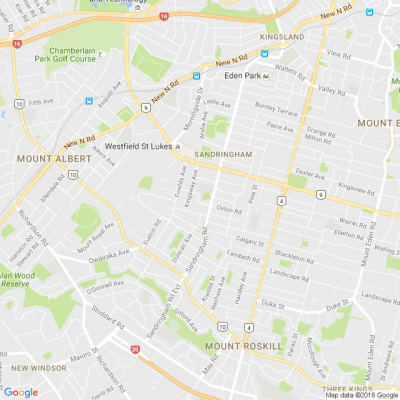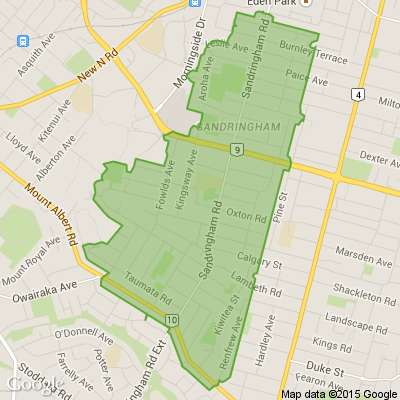After a year in Australia: 'Honestly, this place is cheaper than NZ'
When I left NZ, it seemed I was part of an exodus. Little did I know that exodus was only going to intensify.
It seems every other week, another friend or colleague announces their move across the Tasman. And, look, the lure of Australia is undeniable – better pay, improved working conditions, and yes, the sunshine.
Watch Aziz's price comparison in full on TVNZ+
A year on, we now know more than 85,000 New Zealanders have flocked across the ditch. It seems while the ibis might be notorious for scavenging, the kiwi is now the one crossing the ditch in search of better pickings.
Here’s why.
=========
Let’s kick things off easy with housing. According to CoreLogic’s latest figures, if you’re looking to buy a home, Australia seems to have the edge (unless you’re planning to buy in Sydney, then good luck).
The median house price in Australia is, in NZ dollars, just over $880,000, compared to New Zealand’s $931,000, Even in the pricey cities of Sydney and Auckland, the numbers are comparable, with homes costing nearly $1.3 million.
If you’re renting like me, you’re going to be paying more though, especially if you’re living in Sydney. The average national Aussie rent is around $695 per week, while TradeMe says it’s slightly cheaper in New Zealand at $610.
But if you’re in Auckland, prepare to shell out about $660 weekly compared to Sydney’s eye-watering $820.
Utilities and Groceries
==================
When it comes to utilities, shock-horror, Australians again come out on top. Canstar Blue shows the average monthly electricity bill is $122, far cheaper than the $196 Kiwis pay. And in Australia, we pay our power quarterly.
Personally, because I live on my own here, my bill roughly hits $200-$250 every three months.
When it comes to groceries, prices are on the rise in Australia, with the latest figures showing they are actually the most expensive we’ve seen in a while. The kicker is we are spoiled for choice when it comes to our supermarkets.
The Australian Bureau of Statistics says the average Australian household spends about $208 a week on food, while New Zealanders are hit with a whopping $300 weekly bill (Source: Stats NZ).
It appears more competition and scrutiny in the Aussie market drive prices down, giving shoppers better deals.
Salaries: Show me the money
========================
The average weekly wage in Australia is around $2,094, adding up to nearly $109,000 annually (Source: Australian Bureau of Statistics).
Compare that to New Zealand’s $1,593 weekly wage, or about $80,000 a year (Source: Stats NZ), and the difference is stark.
This earning potential is a huge draw for Kiwis, especially professionals like nurses and police officers, as highlighted in my Great Brain Drain series. 1News revealed 322 New Zealand officers applied to work with Queensland Police in the last year, and our nursing sector has lost nearly 24,000 registered nurses to Australia. Those are only the ones we know of who have registered under the Trans-Tasman Mutual Agreement.
With a salary increase of almost 30% in some cases, the promise of higher pay and better working conditions is hard to resist.
A mixed bag of inflation and employment
=================================
It is no secret Australia is also grappling with its own cost-of-living crisis, but there's a silver lining. Recent figures show a robust job market with low unemployment in June 2024 (Source: ABS).
Meanwhile, in New Zealand, inflation has dipped slightly, leading to a cut in home loan rates, but unemployment remains a concern as many Kiwis seek better opportunities abroad.
The overall picture
===============
Is the move worth it? For many, it seems the answer is a resounding yes.
But Australia does have its own cost-of-living challenges. People are struggling to pay their rent and keep their fridges stocked.
As a Kiwi who has just come here, I can say hand on heart the cost of living in New Zealand is just as bad as Australia, made worse by our lower salaries.
With that said, while it’s crucial to weigh individual circumstances and long-term goals, the grass does seem greener on the other side.
But I’m still holding out hope for New Zealand. Addressing these issues at home could help retain our talent and make our own patch of grass just as green.
After all, there’s no place quite like Aotearoa.
Sources:
=======t
• Australian Median House Price: CoreLogic Australia
• Sydney Median House Price: CoreLogic Australia
• NZ Median House Price: CoreLogic NZ
• Auckland Median House Price: CoreLogic NZ
• Australia Rent: CoreLogic Australia
• NZ Rent: TradeMe
• Australia Power: Canstar Blue
• NZ Power: Canstar Blue
• Australia Groceries: Finder, Australian Bureau of Statistics
• NZ Groceries: Stats NZ, Wise Move
• Australia Salary: Australian Bureau of Statistics
• NZ Salary: Stats NZ
==========================================
www.1news.co.nz...
===========================================
New BEGINNERS LINEDANCING CLASS
Epsom Methodist church
12 pah Rd GREENWOODS cnr. Epsom
Monday 9th February 7pm - 9pm
Tuesday 10th February 10am -11am
Just turn up on the day
Time to Tickle Your Thinker 🧠
If a zookeeper had 100 pairs of animals in her zoo, and two pairs of babies are born for each one of the original animals, then (sadly) 23 animals don’t survive, how many animals do you have left in total?
Do you think you know the answer? Simply 'Like' this post and we'll post the answer in the comments below at 2pm on the day!
Want to stop seeing these in your newsfeed? No worries! Simply head here and click once on the Following button.

Yes!!!! We are open today! Waitangi Day
Red Cross Shop Dominion Road.
Come and visit us today for plenty of lovely finds…. You’ll love our $2 rack.
We are open until 5pm….looking forward to seeing you soon!
184 Dominion Road 📍
Open 7 days a week 🗓️
Mon-Sun: 9am-5pm
Free 90min parking 🅿️







 Loading…
Loading…